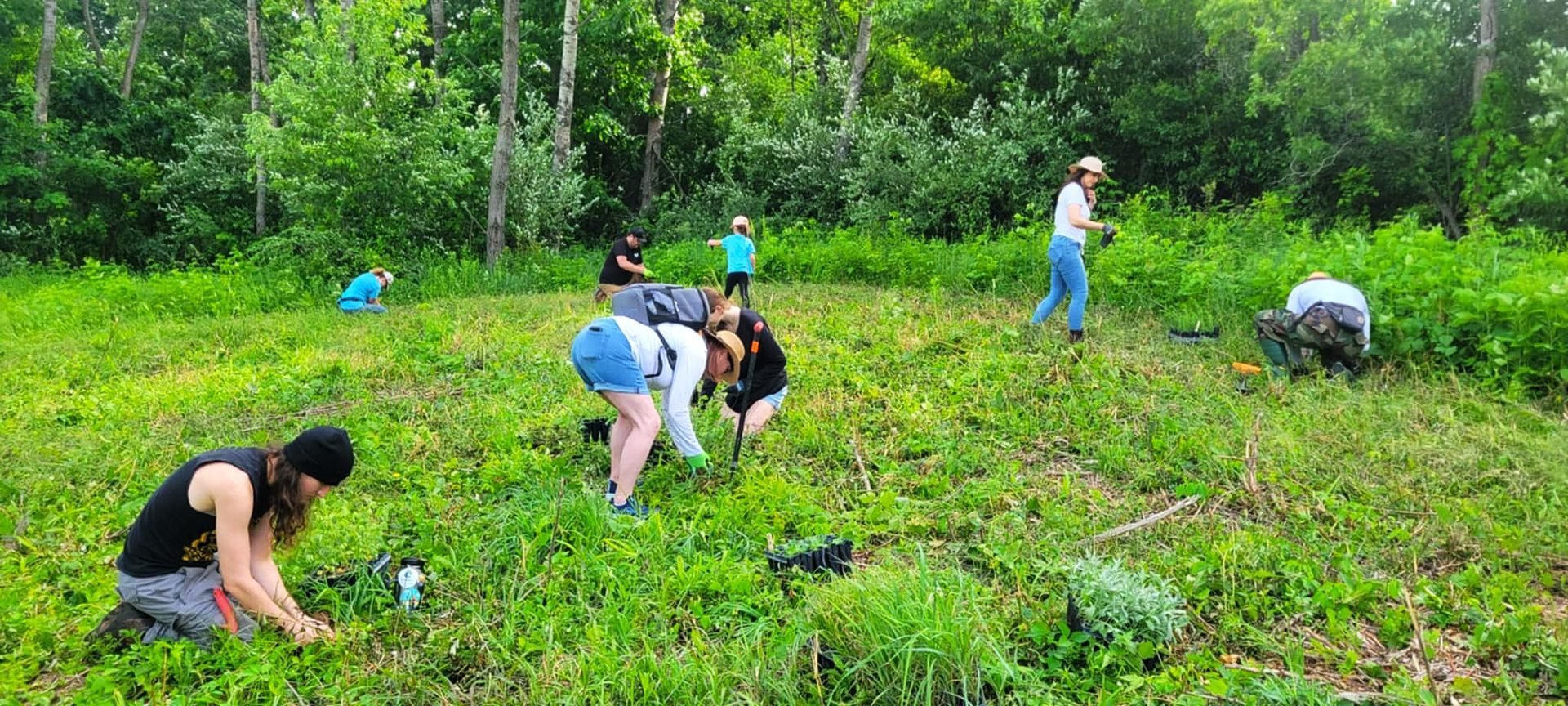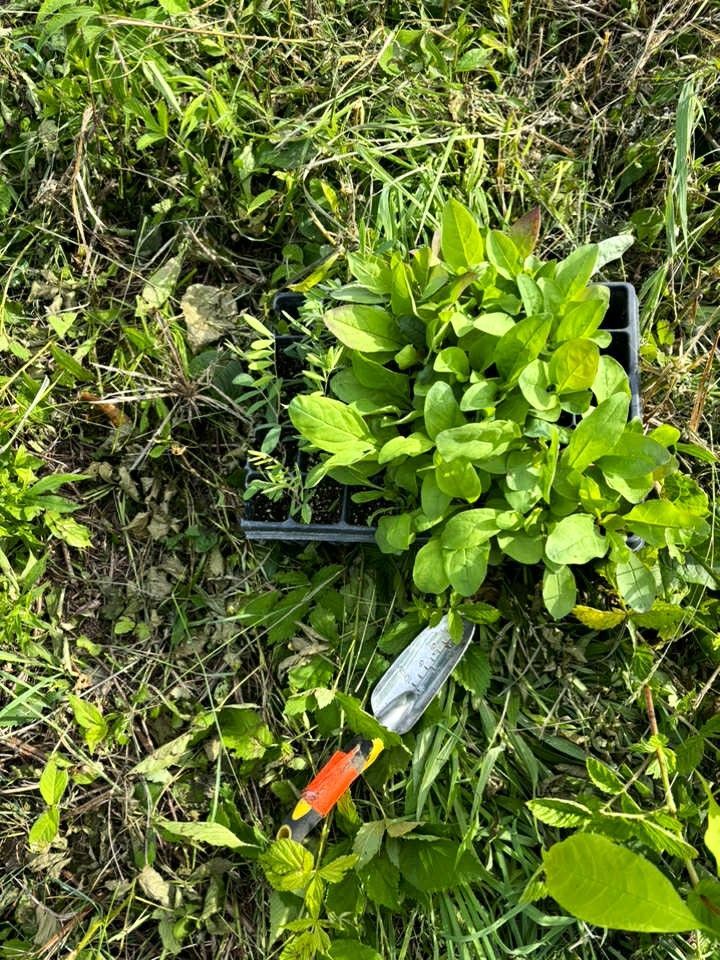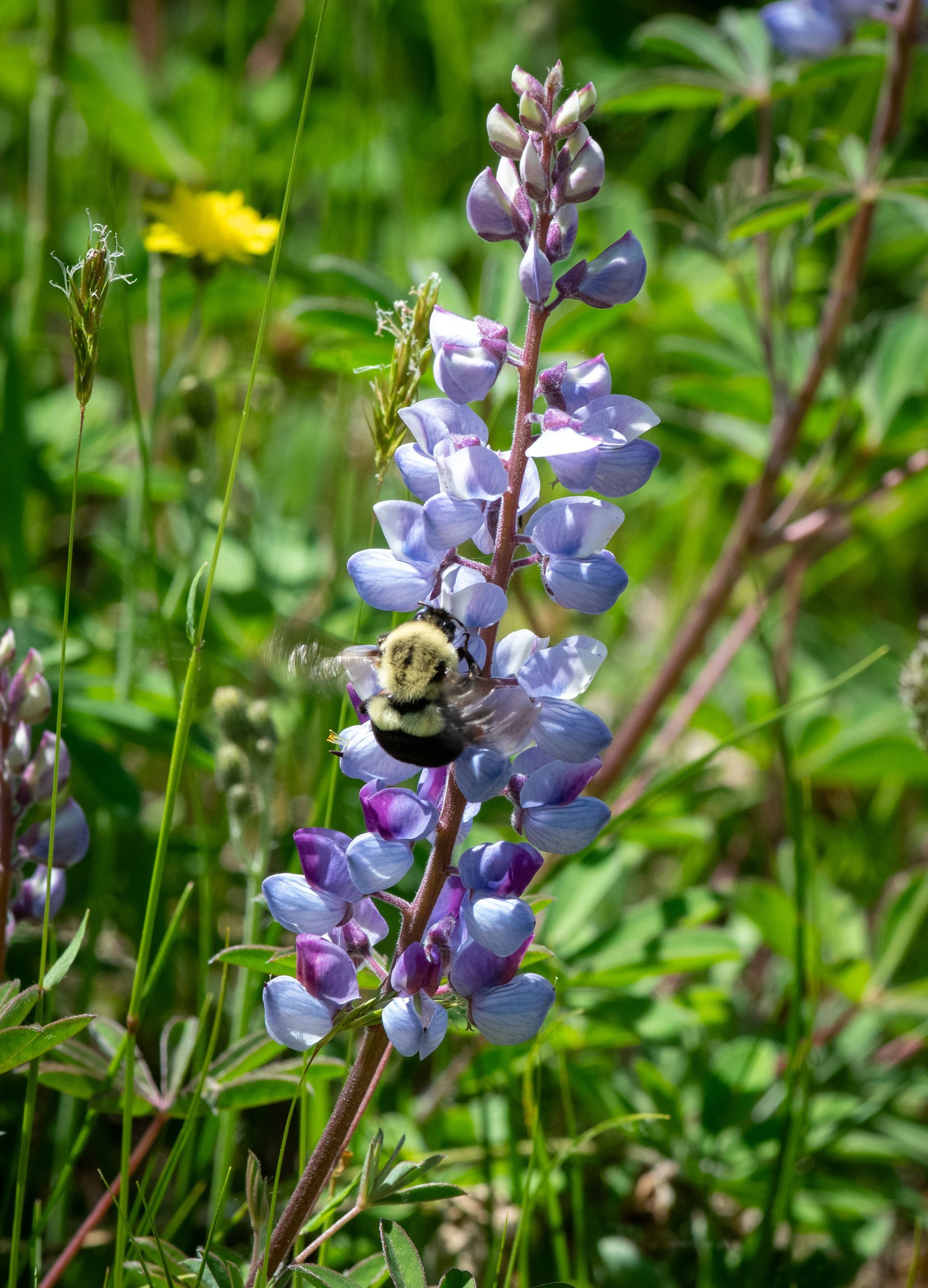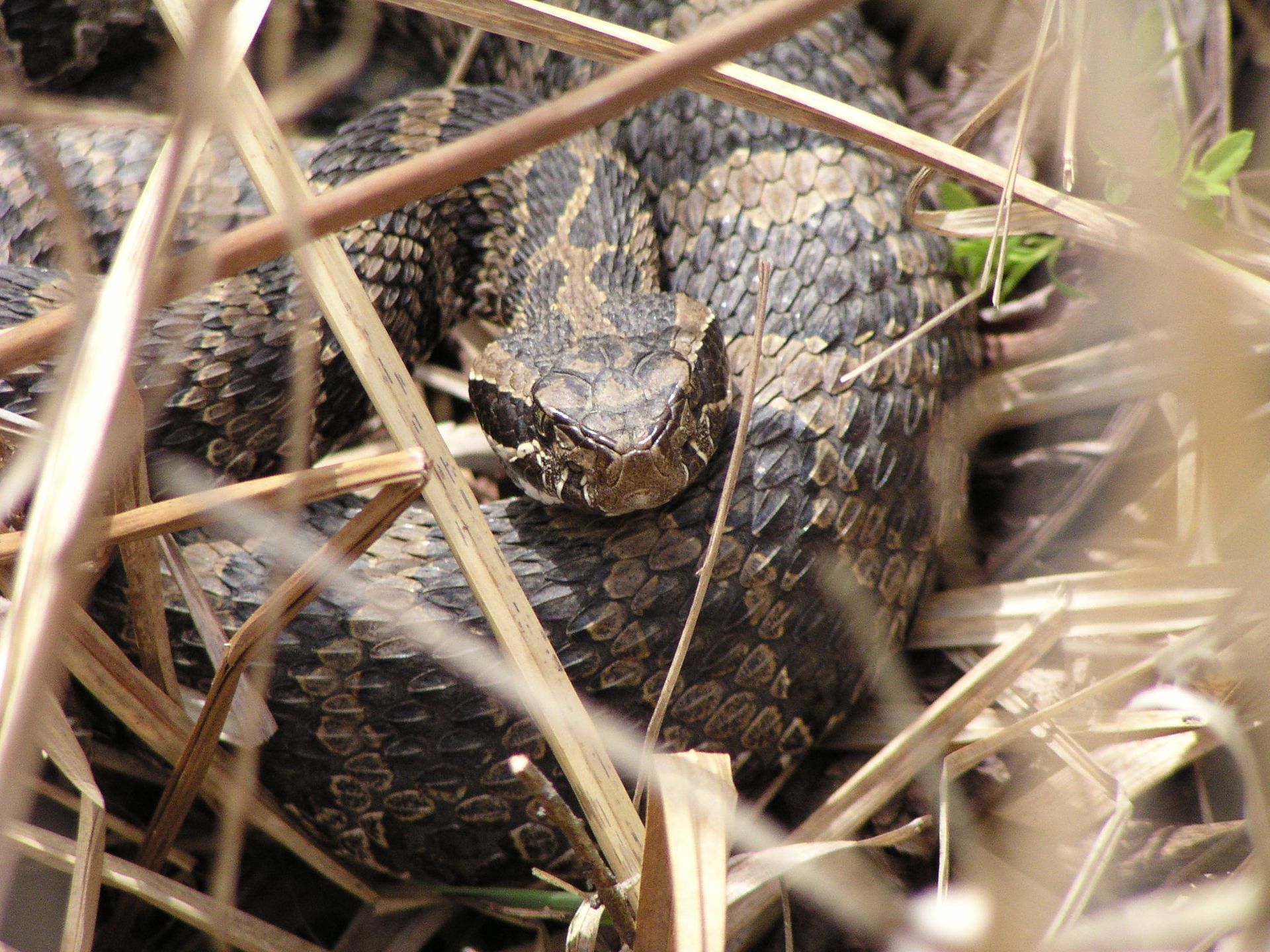On the Ground: Native Plug Planting at Pierce Cedar Creek Institute
On Saturday, June 21, 2025, MUCC’s On the Ground program partnered with the Pierce Cedar Creek Institute (PCCI) for a native plug planting day in Barry County. Located on 850 acres, the institute offers both environmental education opportunities and serves as a biological field station for conducting research. Many diverse native communities from wetlands to prairies are present at PCCI, and many rare or threatened species in Michigan like the eastern box turtle call the institute home.
Volunteers Planted a Variety of Native Species
Once volunteers grabbed their work gloves, plant trays, and tools, they split into groups and worked together in several mowed areas to plant each plug. Mowing the planting areas beforehand will ensure the native species are able to grow and not be outcompeted by grasses. Volunteers used either hand trowels or dibble bars to plant each plug, ensuring that the soil was packed tight and all air pockets were extinguished. Each plug was also watered after planting to help them get a head start with the incoming heat.
Why is it Important?
Planting native species throughout an ecosystem is important because they provide critical food and habitat for wildlife, help aid in erosion and flood control and provide us with essential products that we use in our daily lives. Native plants are an essential part of the fundamental food chain, serving as a valuable food source for insects which are then consumed by birds, and so on. Some native plants like wild lupine are the only food source for rare or threatened insects like the Karner blue butterfly. Native species present along shorelines or banks can also help stabilize the soil and slow water movement, which in turn helps prevent future erosion and flooding issues. Finally, essential products that we rely on like paper are harvested from native plants (i.e., trees and shrubs).
Similar to the Karner blue butterfly, native plants can also provide food and habitat for rare or threatened reptiles like the eastern box turtle and eastern massasauga rattlesnake. Both of these species occupy wetland areas and depend on high quality habitat with native plants for their survival.
Learn More
Want to volunteer at an On the Ground event in your area and be a part of the conservation story? Visit our website at mucc.org/on-the-ground for a list of upcoming projects. Our mission is to conserve and enhance Michigan’s public lands and wildlife through volunteer stewardship. We invite both consumptive and non-consumptive users to band together and improve fish and wildlife habitat across the state. Common habitat projects we complete include native plantings, invasive species removal, brush pile building, river cleanups, and more. Our projects are built for all ages, so bring your friends and family and come join us! Registered volunteers receive lunch and a free appreciation gift for their efforts. Registration links with more event details can be found on our website.
To stay connected with all things MUCC, follow us on Facebook, Instagram, X, and LinkedIn.
Recent Posts







